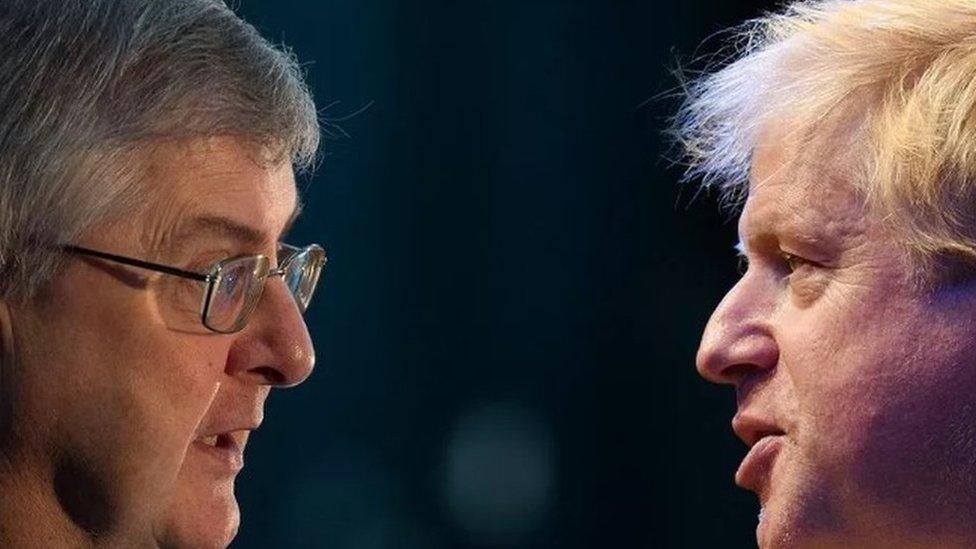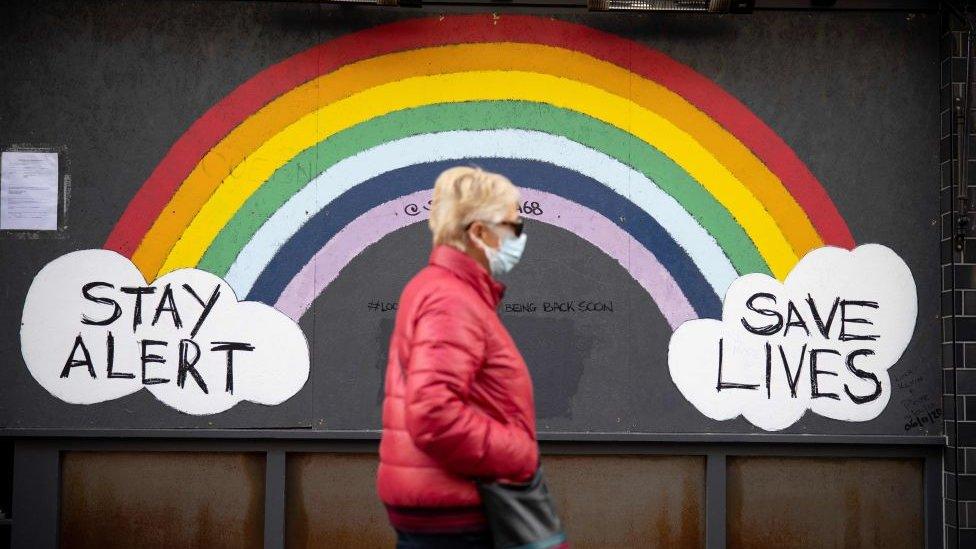Five things we learned from the Covid inquiry
- Published
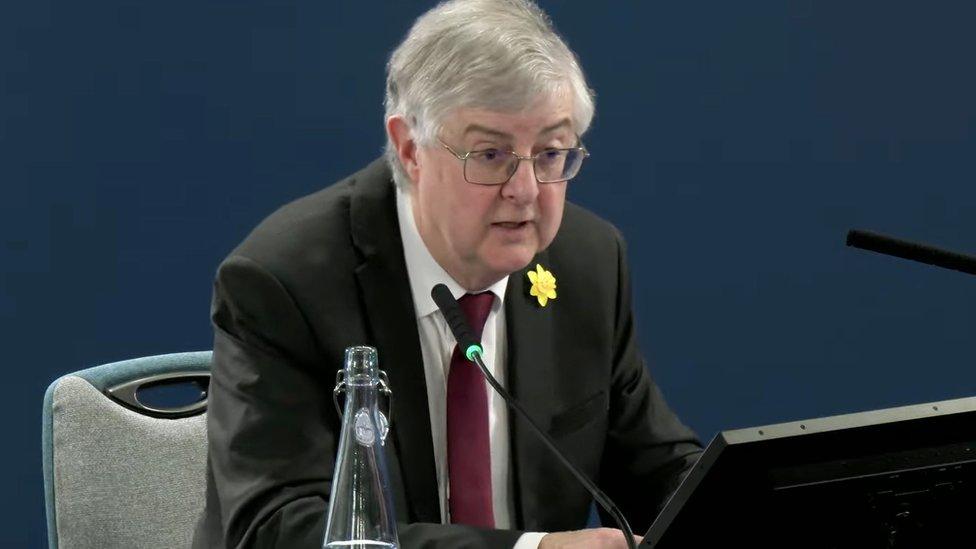
First Minister Mark Drakeford gave evidence on Wednesday
The UK Covid-19 Inquiry in Wales has revealed the level of confusion among the public and politicians over lockdown rules and divisions within the Welsh government.
Three weeks of hearings in Cardiff scrutinising the Welsh government's handling of the pandemic have now come to an end, leaving in their wake a series of talking points.
Since the start of the pandemic in March 2020, more than 12,000 people in Wales have died with Covid - and its effects are still felt across the country.
So what are some of the most notable things we've learned from the Welsh leg of the inquiry?
Ministerial muddle?
Who can visit your house? Can I get a haircut? Is ice-skating OK?
The pandemic brought a plethora of rules and regulations that were used to try and halt the spread of Covid.
However, the inquiry has shown there was confusion not just among members of the public but within the Welsh government cabinet too.
A series of messages between Baroness Eluned Morgan and Rebecca Evans showed the latter asking for clarification on the use of static caravans and the rules around travelling for swimming lessons.
Pressed on her evidence, Ms Morgan, who took over as health minister during the pandemic, denied there was confusion, only colleagues looking for "shortcuts to gather information".
Later on, Ms Evans told the inquiry her questions were the consequence of guidance "made at pace, making contact with reality", suggesting that not every rule and regulation had been fully thought-out.
Cancelling Christmas
Throughout the pandemic, the Welsh government presented a united front when it came to its decisions.
The Covid inquiry has revealed, perhaps not surprisingly, that was not always the case.
In his evidence Vaughan Gething, who was health minister when the pandemic began, said he found himself opposing First Minister Mark Drakeford in a meeting in December 2020 while discussing the relaxation of Covid restrictions at Christmas - an issue which divided the cabinet.
"This is one of the few meetings where Mark and myself set out the case for two different courses of action," he told the inquiry.
"I set out the case for coming away from that agreement and taking more intervention, and Mark set out the case for sticking to the agreement."
Mr Drakeford won the argument. But within four days of the meeting, the Welsh government changed its decision and put Wales into another immediate lockdown.
'Dom says no'
The cancellation of the Wales v Scotland Six Nations rugby match in March 2020, 24 hours before it was due to be played, was referenced several times during the inquiry.
By the time the Welsh Rugby Union called it off, there were already 20,000 Scots in Cardiff for the game - so any hope of limiting transmission was effectively gone.
So why hadn't the government intervened?
Mark Drakeford told the inquiry he had pushed for "mass gatherings" to be banned during a UK government meeting days earlier, but had been told by Boris Johnson: "Dom says no."
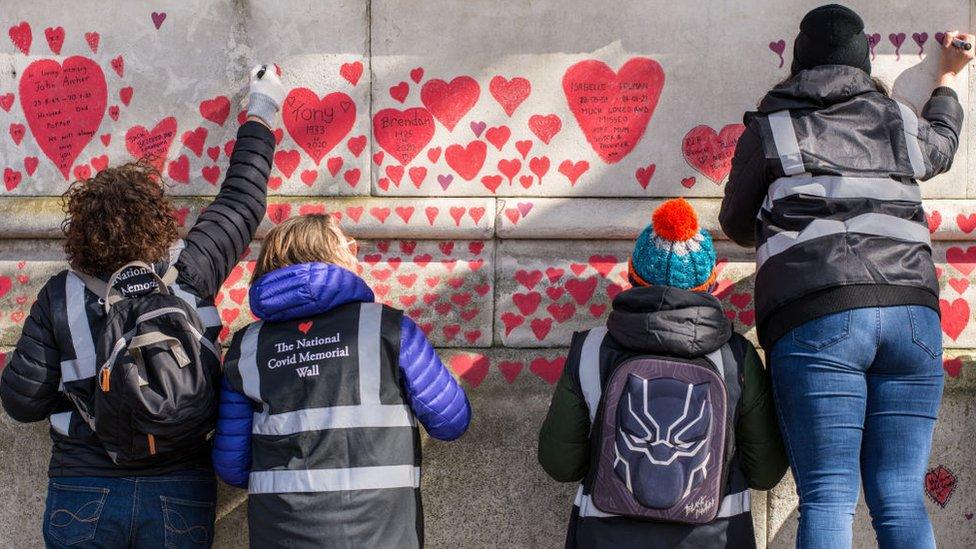
The reference to Dominic Cummings, Mr Johnson's former political adviser, felt loaded and added to Mr Drakeford's portrayal of the UK government lacking real leadership, with Mr Johnson as its "absent manager".
The inquiry counsel, Tom Poole, quickly put the focus back on the first minister, asking why he had not followed the Scottish government's lead and advised against large crowds.
Lidl life
Weaved into the hours of Mr Drakeford's evidence were little glimpses of his daily life during lockdown. He said for exercise he "would cycle to my allotment for 45 minutes and cycle home again".
As the only person in his household not shielding he was responsible for food shopping, and would walk to the supermarket around the corner from his office.
"I leave the government building and I go a few hundred yards away to a Lidl and I join the queue outside," he told the inquiry.
He said his mother was in a care home during the pandemic and after visiting her for her 90th birthday on 22 February, 2020, "I didn't see her again for many, many months".
These vignettes helped to humanise the first minister.
"One of the big differences between being a minister in Wales and being a minister in England is that we don't live separate lives," he said.
What we did not learn
The evidence from 34 witnesses, supplemented by more than 25,000 documents over the last three weeks, has shone a light on how decisions were made in Wales - but many questions remain unanswered.
Most of the hearings focused on the first wave of the pandemic, a frustration for some bereaved families who lost loved ones later on.
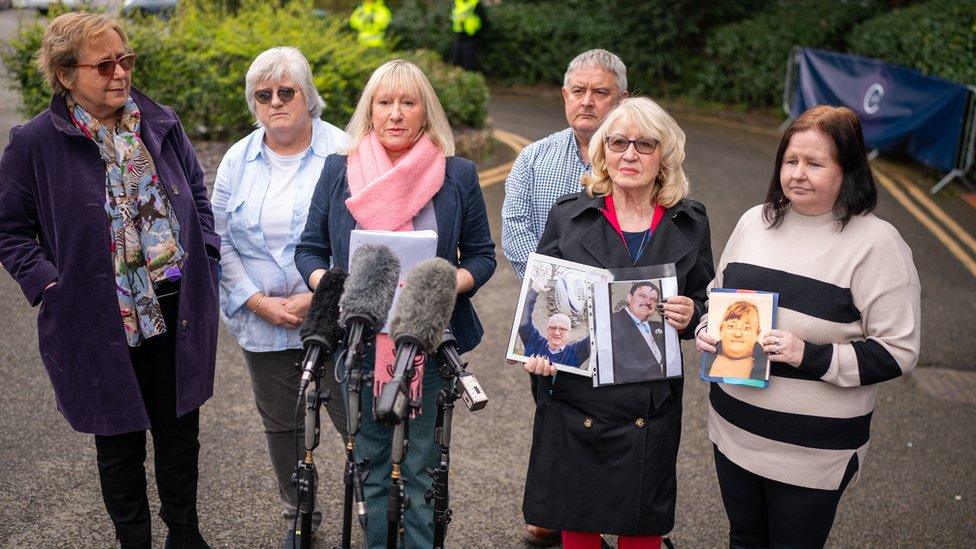
Families outside the inquiry in Cardiff earlier this week
While ministers were probed on how they imposed restrictions, far less was asked about how and when they decided to lift them.
Some of the most controversial lockdown measures were barely mentioned.
Baroness Hallett clearly did not think much of Wales' five-mile "rule of thumb" travel restriction, but we did not hear much about others such as the ban on "non-essential goods" in supermarkets.
There are several more modules to come in this inquiry as it moves away from Wales, which will cover issues such as personal protective equipment (PPE), care homes and vaccines, but we are unlikely to see such a specific focus on Wales again.
- Published14 March 2024
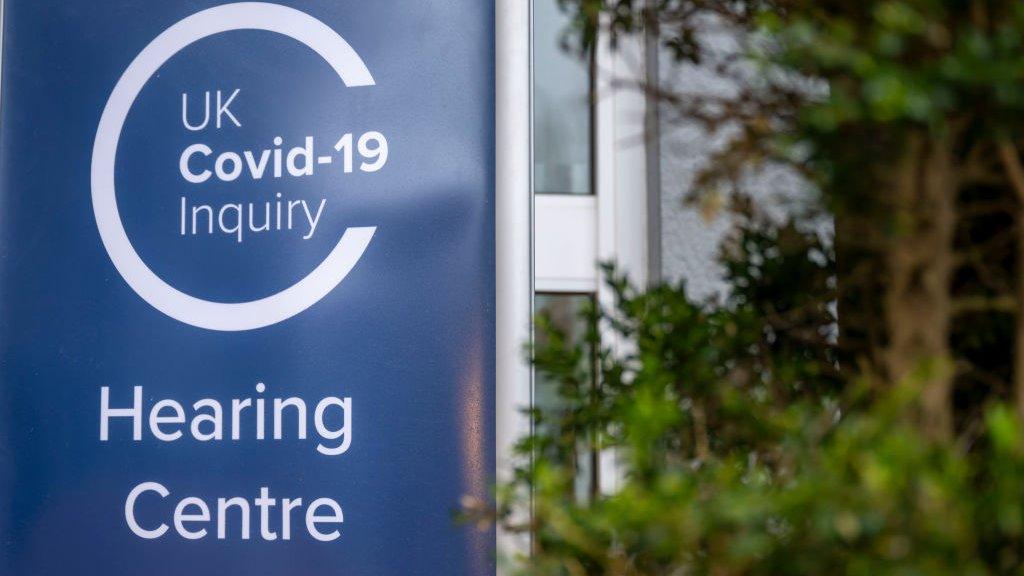
- Published13 March 2024
